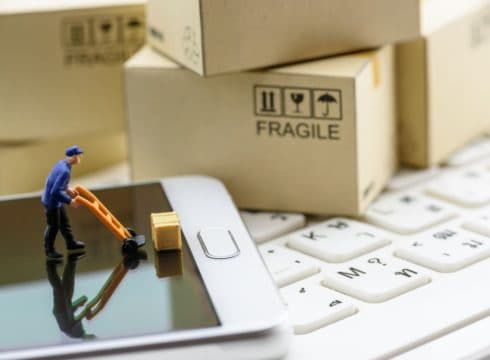CAIT wrote to union minister Piyush Goyal, seeking stricter regulation on ecommerce giant
Only Tamil Nadu has defined what constitutes essential items, whereas other states have not specified so
Traders have previously accused ecommerce platforms of following unfair business practices
Inc42 Daily Brief
Stay Ahead With Daily News & Analysis on India’s Tech & Startup Economy
The Confederation of All India Traders (CAIT) on Thursday (May 13) wrote to union commerce minister Piyush Goyal, seeking stricter regulation on ecommerce companies that are delivering non-essential goods during the state-imposed lockdown.
The development comes a day after ET reported that several ecommerce companies are delivering non-essential goods even though several states — Maharashtra, Karnataka, Tamil Nadu, Delhi and Haryana — have barred it. The report highlights that the ecommerce companies are leveraging the lack of clarity in state-imposed regulations to continue their operations fully.
Only Tamil Nadu has defined what constitutes essential items, whereas other states have not specified so. As per Tamil Nadu’s orders, delivery of food, provisions, vegetables, meat and fish by ecommerce is allowed from 6 AM to noon. Karnataka, on the other hand, had allowed delivery of all essential and non-essential goods but revised the order to only allow delivery of essential goods earlier this week.
“The sole purpose of the lockdown is to limit human-to-human interaction and reduce exposure of the general population to the Covid-19 virus and thereby break the chain and spread of Covid-19. Therefore, all non-essential activities, including the sale and delivery of non-essential items, are prohibited during the lockdown,” Praveen Khandelwal, national secretary-general of CAIT, said in the letter to Goyal.
He further wrote that the sale of non-essential items through ecommerce does not reduce the risk of exposure and spread of the virus to the public, but only shifts that risk from one set of people to another set of people, who generally belong to more vulnerable sections and have to risk their lives to earn a living.
It is important to note that the sale of non-essential goods like apparel, accessories and electronics through brick-and-mortar stores is completely prohibited in the states, where lockdown is imposed. Allowing such deliveries through ecommerce has not been going well with traders organisations, who had previously protested to get the provision removed from Karnataka.
Notably, ecommerce giants have a very strained relationship with sellers in India. Lobby groups like All India Online Vendors Association (AIOVA), CAIT and many others have accused these platforms of following unfair business practices and creating an unlevel playing field for offline sellers who are not listed on the platform. Besides this, they have also accused these companies of giving preferential treatment to some big sellers by charging hefty commissions from small retailers.
{{#name}}{{name}}{{/name}}{{^name}}-{{/name}}
{{#description}}{{description}}...{{/description}}{{^description}}-{{/description}}
Note: We at Inc42 take our ethics very seriously. More information about it can be found here.


